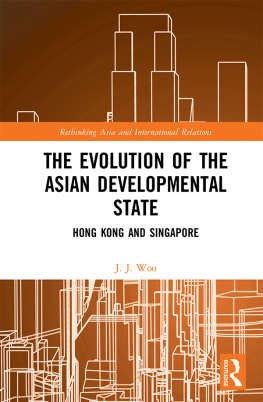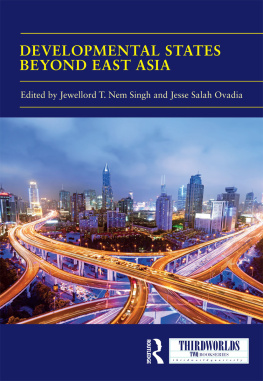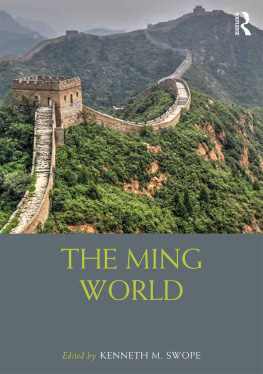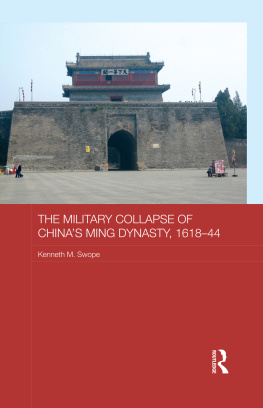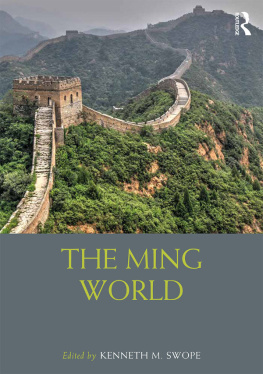Ming Xia - The Dual Developmental State: Development Strategy and Institutional Arrangements for Chinas Transition
Here you can read online Ming Xia - The Dual Developmental State: Development Strategy and Institutional Arrangements for Chinas Transition full text of the book (entire story) in english for free. Download pdf and epub, get meaning, cover and reviews about this ebook. year: 2017, publisher: Routledge, genre: Politics. Description of the work, (preface) as well as reviews are available. Best literature library LitArk.com created for fans of good reading and offers a wide selection of genres:
Romance novel
Science fiction
Adventure
Detective
Science
History
Home and family
Prose
Art
Politics
Computer
Non-fiction
Religion
Business
Children
Humor
Choose a favorite category and find really read worthwhile books. Enjoy immersion in the world of imagination, feel the emotions of the characters or learn something new for yourself, make an fascinating discovery.

The Dual Developmental State: Development Strategy and Institutional Arrangements for Chinas Transition: summary, description and annotation
We offer to read an annotation, description, summary or preface (depends on what the author of the book "The Dual Developmental State: Development Strategy and Institutional Arrangements for Chinas Transition" wrote himself). If you haven't found the necessary information about the book — write in the comments, we will try to find it.
Ming Xia: author's other books
Who wrote The Dual Developmental State: Development Strategy and Institutional Arrangements for Chinas Transition? Find out the surname, the name of the author of the book and a list of all author's works by series.
The Dual Developmental State: Development Strategy and Institutional Arrangements for Chinas Transition — read online for free the complete book (whole text) full work
Below is the text of the book, divided by pages. System saving the place of the last page read, allows you to conveniently read the book "The Dual Developmental State: Development Strategy and Institutional Arrangements for Chinas Transition" online for free, without having to search again every time where you left off. Put a bookmark, and you can go to the page where you finished reading at any time.
Font size:
Interval:
Bookmark:

Mentor and Friend

CDS | Capitalist Developmental State |
CPC | Communist Party of China |
CPPCC | Chinese Peoples Political Consultative Conference |
MITI | Ministry of International Trade and Industry |
NIE | Newly Industrialized Economy |
NPC | National Peoples Congress |
NPCSC | National Peoples Congress Standing Committee |
PBC | Peoples Bank of China |
PC | Peoples Congress |
PD | Renmin Ribao Haiwai Ban [Peoples Daily, Overseas Edition] |
PPC | Provincial Peoples Congress |
PPCSC | Provincial Peoples Congress Standing Committee |
PRC | Peoples Republic of China |
RMRB | Renmin Ribao Guonei Ban [Peoples Daily, National Edition] |
SC | Standing Committee |
SDPC | State Development Planning Commission |
SEZ | Special Economic Zone |
TVE | township and village enterprise |
WTO | World Trade Organization |
Font size:
Interval:
Bookmark:
Similar books «The Dual Developmental State: Development Strategy and Institutional Arrangements for Chinas Transition»
Look at similar books to The Dual Developmental State: Development Strategy and Institutional Arrangements for Chinas Transition. We have selected literature similar in name and meaning in the hope of providing readers with more options to find new, interesting, not yet read works.
Discussion, reviews of the book The Dual Developmental State: Development Strategy and Institutional Arrangements for Chinas Transition and just readers' own opinions. Leave your comments, write what you think about the work, its meaning or the main characters. Specify what exactly you liked and what you didn't like, and why you think so.

